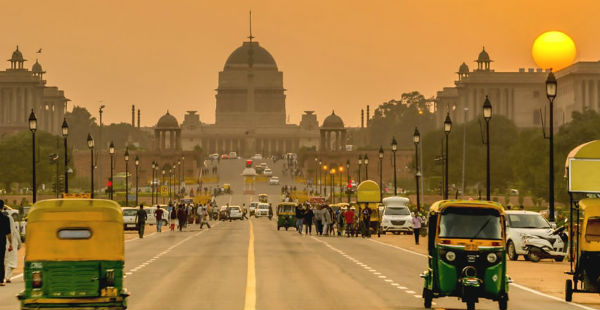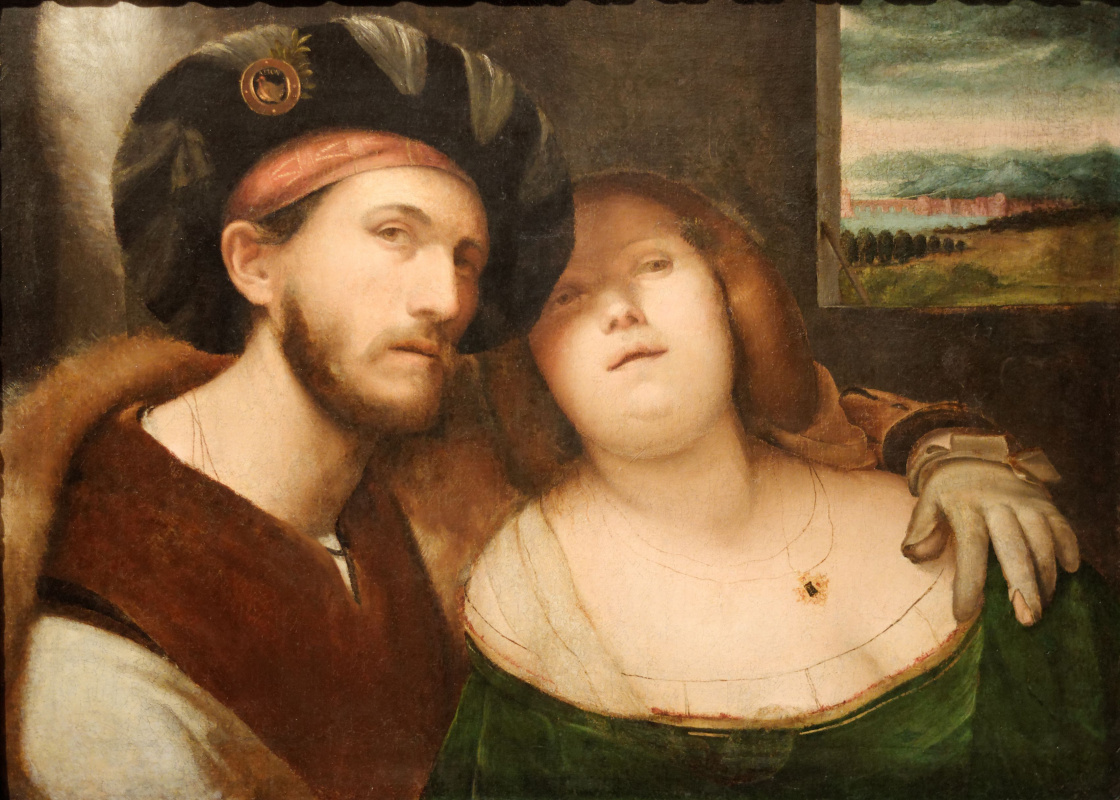
In his poem, “Ugly Histories,” Shrenik Mutha recounts, without trying to be overtly poetic, husbands slapping wives within his family.
their histories are
shameful. I will write them
even if they don’t tell me, even if I don’t know them,
I will write them
by listening closely to the silences in people’s voices.
Is how “Ugly Histories” ends.
And then follows:
“Shrenik Mutha is a Pune based poet. He studies Law.”
Why am I not surprised “he studies Law?”
Families have “ugly histories,” which must be unpacked, and the bravery and the beauty forgotten, and if the poet won’t do it, well, there’s always a lawyer who will.
Truth is attractive, and poets will tell their readers how attractive Dame Truth is—and readers, in turn, emboldened, can shout the news.
To make the good known, efficiency is crucial—the more readers informed of the truth, the better, which is perhaps why poetry was invented—to make the truth as attractive to as many people as possible—without bothering with the machinations of the courts, where true and just proceedings are respectful, confidential, fair, material, argumentative, and agonizingly slow.
Mutha’s “even if they don’t tell me” might not fly in court.
Hearsay, like poetry, can go in any direction.
All citizens have a right to be treated justly; and usually the more just, the more dull.
The poets have a slightly different agenda. Dame Truth might wink. Or smile.
Or weep.
*
Urvashi Bahuguna gives you so much trouble and adventure in her poems, you exhale deeply after you finish reading.
Walking a rope bridge over the Atlantic, she freaks out. “The stomach is a swing” is how she deftly conveys the sickening fear. “Stepping off the bridge, the grass/ is grasped at for support.” From her poem, “Alone.”
Like most moderns, she doesn’t let form get in the way. No verse manuals for her. “there is no manual on how to resist/ a man who steps off a moving train” From her poem, “In praise of drool.”
The poem, “Boy,” is worth quoting in full:
Boy meets girl, girl orders the right
dish in a restaurant. Boy thinks
he never has to order for himself
again.
Girl doesn’t get on the aeroplane,
Boy doesn’t understand, won’t hug
her back. Girl slips into his pocket
her mornings where she will wake in time
for him to hear her voice before his
day ends.
Boy comes home in the holidays, Girl grows
her hair out, Boy doesn’t recognize the
inches, struggles with the idea
that she might be prettier than before.
Boy doesn’t know the new places in
town, Girl takes him for tea here
cake there, wine somewhere else.
Boy is tired, their city is shifting
in his head. Boy
doesn’t say any of this
only asks time and again
that she quit smoking. Girl kisses
some other boy. Girl wishes
it was Boy. She doesn’t tell him
any of this, only gets angry that
he doesn’t call more often. Boy is Boy.
Boy pretends it away, Boy holds the trump
card: he flies away. In tropical countries,
autumn is not a season. Boy watches the leaves
turn yellow. Boy is glad there are places Girl
is not.
“Boy doesn’t recognize the inches” is nice, as is the passage beginning, “Girl slips into his pocket…”
Nice as well: how singularly expressed are the miscommunications, the ‘who gets the upper hand’ in love, and the idea of place.
Contemporary poetry’s significance is this—rhyme and meter abating, under the quantity radar, we get “the inches” of a more subtle measure, or the artful, though plain, beauty of “her mornings where she will wake in time/for him to hear her voice before his/day ends.” We don’t “recognize the inches,” perhaps, but Wordsworth, Shelley, and Millay are alive and well in them. Urvashi Bahuguna is a contemporary poet. “Boy is Boy” is perhaps the downside. The plain, the quotidian, the banal, and the familiar threaten to overwhelm at all times. When we judge in a poem and judge poems as we would tweets, poetry’s stock cannot help but go down. Poetry’s Modernist agenda demands the poet be good without a guide. Many get lost in the woods, and if they escape using their wits, they still haven’t found poetry—because poetry is the opposite of being lost.
**
Sridala Swami is interested in labyrinths and mazes—how to get out of them, or into them, or how they are useless. She reminds us of Jorge Luis Borges.
Poetry like hers is self-effacing—you won’t get any news of her; just news of where her mind would like to go next. Call it avant-garde, if you wish.
Here’s a rather remarkable poem of hers:
“Redacted poetry is a message in a bottle”
You have one book with you. It is your lifeline, because you are now in a place with no means of communication. There is only this book, and your one chance of speaking to the world is through the words in it.
So you compose your message in your head, you mark words in the book, and you carefully cut them out one by one, knowing all the while that for every word you use up, others will be lost on the reverse. This is the opportunity cost of making your message.
But you do it anyway because you must. At first your dispatches are voluble and profligate. Soon, you ration your words. As the pages become cut-outs the book speaks to you differently. It must now be a classic because every time you read it, it shows you something new.
The end of the book does not come, as it usually does, when the last page is turned. It comes when what remains are the unusable words. Everyone has a different list of these, but because this is the book you have and this is your list, the words that remain include ‘anneal’ and ‘recombinant’ and ‘brise’. This is not to say that you do not love these words, or that you are not happy that somebody– the author of the book, for instance—found a use for them; just that you can’t imagine what you could have to say that would include these and other such words.
But you learn these words because—after you have said all you have to say, after you have used up all the other words—these are all that are left you. Until other words come from the outside, until they can be recycled, the words you don’t want or need are your companions through what you hope is only a temporary silence.
I am reminded of Dante’s Vita Nuova, the earlier work on falling in love with Beatrice, where in the beginning of that book Dante says this small book is copied from a larger one—his memory.
To contemplate sets of finite quantity—where it is common to vaguely assume the infinite—is the mark of the mathematical genius, and any writer, despite the immensity of language and its reality, profits quite a bit (who can say how much?) from this activity. Sridala Swami is doing that here, and traveling from the “one book” to “words you don’t want or need are your companions through what you hope is only a temporary silence,” is quite a ride.
***
Aditi Nagrath has a poem, “On Flowers, In Your Absence” which is also profound, in a more lyric manner:
Truth be told, I am never more mine
than when I am yours. What a thing to say!
I meant it. At least in the moment
of that moment—in its core, the throne
of pain—what I said was true even if
the words I used were not. Afterwards,
I turned outwards: petal, leaf, stamen,
stem, one flower, two, a bunch perhaps.
Subtle pink, startling white, a hint
of yellow. I preferred them greatly
to the colors beyond my window.
The metaphysical acrobatics of Nagrath’s poem are delightful: truth, meaning, time; the personal heroically stirring itself against the beyond.
****
Adil Jussawalla was born in Mumbai in 1940, lived in England between 1957 and 1970, and published his first book at 22.
Jussawalla’s work reflects the dying, glorious flame of formalist Anglo-American poetry. He’s good, but good poetry needs a good audience far more than bad poetry does—should a good audience rebuke bad poetry, or ignore it? Or, is there no such thing as an “audience” for poetry (and no such thing as bad poetry) and, instead, a million types of poetry ought to find their million audiences?
I believe in one audience, and the advantage should be apparent at once—and if it’s not, the attempt to convince you of its validity will certainly fail.
The critical consensus seems to be that Jussawalla is “complex” and to understand his poetry it is necessary to pontificate endlessly about “neocolonialism” and “Marxism” and the “quest for meaning” and the “irony of art” and the “future of marginalization” and other nonsense. Any poet is flattered by scholarly attention—until he realizes the scholarly blabber has effectively buried the poetry.
After Jussawalla gained notoriety with his honesty, formalism, and wit, in the 1960s, he must have eventually felt a great deal of pressure to sound less like Robert Lowell (d. 1977) or W.H. Auden (d. 1973). Well, Lowell and Auden didn’t have to ask permission to sound like whomever they were imitating—Milton, Shakespeare, Tennyson, Homer—so why should an Indian poet have to do the same? Good poetry doesn’t need political, ethical or nationalistic tricks. It’s poetry. It can do any trick it wants. It just has to be good—and lucky enough (or sly enough, perhaps) not to be ruined by scholarship.
*****
Is haiku a hustle?
It was for Williams and Pound, who, in broad daylight, in the early 20th century, ripped off haiku (all the rage after the Japanese won the Russo-Japanese War in 1905) in the name of one quickly drawn up, Western, High Modernism, Imagiste, poetry movement—which lived in little magazines for a few years and then landed triumphantly in American school textbooks.
Poe said a “long poem doesn’t exist,” but he also warned that poetry is neither truly itself as a mere epigram.
Poe’s warning hasn’t slowed down “The Red Wheel Barrow” and its harrowing influence. It’s difficult to argue against the brief when time is all we have.
A larger term for Modernism in the West (with all the loaded, hate-the-classical-past, rhetoric implied) might be Impressionism, in many ways its earlier manifestation—art seeking only an immediate “impression,” whether it’s a war photograph, an Instagram poem, a Rumi insight poem, or a piece of ‘collage’ art resembling whirlwinds of trash, in a symbolic critique, perhaps, of “late capitalism.” Impressionism covers all, and is hard to resist.
Paresh Tiwari has been “widely published” and “has conducted haiku and haibun workshops,” says a website. (Haibun is the introductory prose piece to a haiku).
This is the kind of poet who fills the serious poets with despair, since what serious poet can compete with a poem like the following?
in the space
between falling rain
and loneliness…
the song
that once was ours
There. Consider yourself hustled.
******
Anjali Purohit, situates herself against haiku/impressionism in the pure temporal/metaphoric force of her poem, “The Wave.” It is simple, yet effective:
The Wave
She knows she will break
And yet
She rushes to meet him,
The rock.
Rising and falling,
a song
gathering momentum
smiling surf
rushing to throw herself
at the rock.
He just waits
patiently watching
her insanity
as she smashes into him
Inevitably
breaking herself into
infinite particles
spray and foam
covers him
for a moment too brief,
holds him
in her temporality
he just waits
patiently watching
her madness
unmoved, knowing
that even after
she scatters
herself with abandon and
abates, subsides, silent
going back into
her mother’s womb
again
one with the deep
that she goes only
to gather strength
build up and
come rushing back
to be splintered
around him.
Patiently waiting
The rock.
Over and over forever
She knows she will break
and yet
she rushes.
*******
And so we come to the end of June’s poets. Thanks, again, to Linda Ashok. We’ll see you in July!

/https://public-media.smithsonianmag.com/filer/20110520102315415272main_aas-eclipse-03-full.jpg)






















